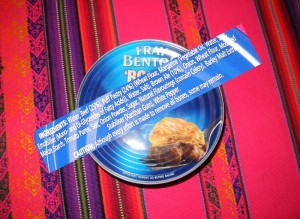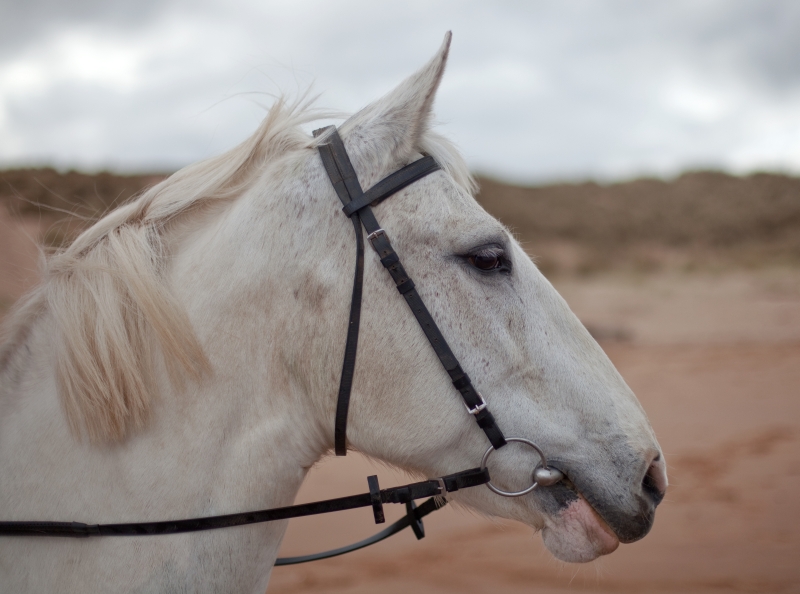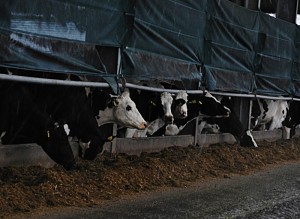After the revelations about problems in the food chain, vegetarians are probably feeling a bit smug; those folk who for religious reasons avoid certain types meat will be feeling quite concerned, and investors in food testing labs will be rubbing their dividends with some glee! Duncan Harley writes.
 There is of course nothing new here.
There is of course nothing new here.
Throughout history products such as milk and sugar, coffee and tea, mustard and ketchup, baking powder, butter, cheese, flour, olive oil, honey, spices, vinegar, beef, pork, lard, beer, wine and canned vegetables have been subject to adulteration on a regular basis in the developed world.
Driven by the profit motive, manufacturers and distributors are prone to dupe unsuspecting customers by bulking out foodstuffs with cheap substitutes.
The old stories about sawdust in bread, chalk in baking powder and the adulteration of beer with water all have some basis in truth. A recent case in China involved the adulteration of milk with melamine. After a brief trial in 2008, two executives of the company concerned were sentenced to death and shot.
In 2012, a study in India conducted by the Food Safety Standards Authority of India (FSSAI) across 33 states found that milk in India is adulterated with detergent, fat and even urea, as well diluted with water. At the turn of the 20th century, industrialization in the United States saw an uprise in adulteration and this inspired some protest.
Accounts of adulteration led the New York Evening Post to parody:
Mary had a little lamb,
And when she saw it sicken,
She shipped it off to Packingtown,
And now it’s labelled chicken
Back in the 18th century, people recognized adulteration in food.
“The bread I eat in London is a deleterious paste, mixed up with chalk, alum and bone ashes, insipid to the taste and destructive to the constitution. The good people are not ignorant of this adulteration; but they prefer it to wholesome bread, because it is whiter than the meal of corn [wheat].
“Thus they sacrifice their taste and their health. . . to a most absurd gratification of a misjudged eye; and the miller or the baker is obliged to poison them and their families, in order to live by his profession.” – Tobias Smollet, The Expedition of Humphrey Clinker (1771)
There have been recent warnings that all might not be quite right within the UK meat supply chain. The Food Standards Agency published a report in 2003 entitled “Survey of Undeclared Horsemeat or Donkey meat in Salami and Salami-Type Products”.
 The results from a range of outlets, including supermarkets, independent retailers, catering suppliers and independent butchers indicated were seemingly inconclusive in that only one result showed horse meat in food.This was at the time put down to cross contamination at a French food plant named as “Busso Freres”.
The results from a range of outlets, including supermarkets, independent retailers, catering suppliers and independent butchers indicated were seemingly inconclusive in that only one result showed horse meat in food.This was at the time put down to cross contamination at a French food plant named as “Busso Freres”.
The company promised to introduce additional quality controls to prevent the “mixing or cross contamination of meat species”.
Between September 2006 and September 2009 a Ravenscorpe firm ran a £200,000 food scam on fake halal meat.
There have also been countless instances of so called “organic” foods and “free range eggs” being found to be fake in the UK.
Now I have no problem eating food which is honestly made and honestly labelled. A quick search of my food cupboard reveals a well known brand of tinned pie which I, perhaps unwisely, purchased in my local pound shop since it seemed too good a bargain to miss.
The first two ingredients are listed as “water 30%” and “beef 25%”.
I have wine in the house which will have been clarified using “bulls blood” and beer in my fridge which has been fined using “Isinglass” which is of course a substance obtained from the dried swim bladders of fish. I have on one occasion eaten horsemeat and probably had donkey meat in a Cretan restaurant on a few occasions.
It appears to me however that food regulation has to a great degree been outsourced to suppliers and manufactures quite far down the food processing chain. The end user has little control of the food content beyond either refusing to buy or simply trusting the description on the packaging.
The high street shops and supermarkets seem to be hampered by too many processes along the way making it difficult to track the origin and up until now the content of the foodstuffs they sell to us.
 Like the banking industry before it, the food industry has betrayed its customers. At what point from the slaughterhouse did the cow become a horse? The bigger question is why no-one is checking.
Like the banking industry before it, the food industry has betrayed its customers. At what point from the slaughterhouse did the cow become a horse? The bigger question is why no-one is checking.
It’s a bit late now checking samples to find it’s all horse. As consumers we have the right to have our food labelled properly, what’s in it, if a ‘natural ingredient’ is actually some animal gland secretions or if chemically treated then what with?
This way we can make an informed choice as to what we eat and feed to our families. As vegans say “a horse is a cow is a sheep”. Perhaps we could all get back to home cooking, to be more aware of the ‘crap’ we can avoid, and to choose a healthier option whatever our diet – meat, veggie, vegan etc.
After reviewing the FSA’s response to this and the 2003 salami scandal, I am not sure there is much hope of a government that wants us to be healthy!
Horse meat is around 25% of the cost of beef.